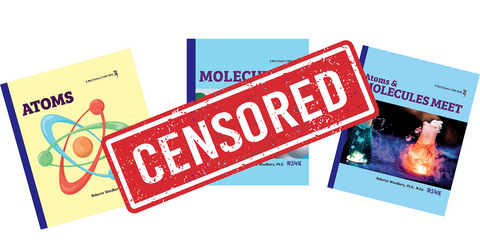Selecting a quality science program is crucial for laying a strong foundation in your scientific education and career. With numerous programs available, it’s important to find one that is well-structured, content-rich, and aligns with your child’s academic aspirations. This guide will provide you with essential steps to ensure you choose a program that meets these criteria. Parents who want their students to succeed in STEM (science, technology, engineering, and mathematics) should pay careful attention to these criteria.
Examining the Curriculum Structure
One of the first steps in evaluating a science program is to take a look at its curriculum structure. Start by looking at the program’s table of contents. A well-organized curriculum is divided into specific subjects such as chemistry, physics, biology, astronomy, and geology. This structured approach ensures that the program builds knowledge systematically, allowing students to develop a deep understanding of each area. A random list of science topics often indicates a lack of coherence and can hinder students from grasping fundamental concepts. Parents should ensure that the chosen program offers a logical progression of topics, enabling students to build on their knowledge step by step.
Looking for Authentic Scientific Vocabulary
The use of authentic scientific vocabulary is a hallmark of a quality science program. For instance, the program should discuss "atoms" instead of using vague terms like "particles." Specificity in language indicates that the curriculum is based on real scientific principles and prepares students for more advanced studies. Authentic vocabulary ensures that students are learning the correct terminologies and concepts, which is crucial for their future academic and professional endeavors. Parents should look for programs that emphasize precise scientific language, as this will help students develop a strong grasp of essential concepts.
Ensuring Foundational Content
It's essential that foundational scientific concepts such as atoms and molecules are introduced early, especially in the elementary grades. These topics should be explained in a simple, easy-to-understand manner to help young learners build a solid foundation. This early introduction helps demystify complex ideas and fosters a natural curiosity for science. Ensuring that foundational content is age-appropriate and comprehensible is key to nurturing a long-term interest in the subject. Parents should verify that the program introduces these fundamental concepts in a way that is accessible for younger students, setting them up for success in more advanced studies.
Being Cautious About NGSS Alignment
While the Next Generation Science Standards (NGSS) provide a framework for science education, it’s crucial to approach NGSS-aligned programs with caution. The NGSS was developed using outdated learning progressions and often omits important content across all science subjects. NGSS-aligned elementary curriculums, provide superficial or inaccurate information which is detrimental to a student's understanding of science.
Prioritizing Print Over Digital Formats
Research has shown that print materials often lead to better comprehension compared to digital formats. When choosing a science program, opt for print textbooks and resources whenever possible. Print materials allow students to engage more deeply with the content, aiding in retention and understanding. Parents should prioritize programs that offer comprehensive printed materials to enhance their child’s learning experience.
Incorporating Hands-On Science Experiments
A quality science program should include hands-on experiments where students can apply what they’ve learned. These experiments should teach students to make observations, record data, and draw conclusions. Hands-on activities foster critical thinking and a deeper understanding of scientific concepts. Parents should ensure that the program includes opportunities for practical experimentation, as this is essential for a well-rounded science education.
Why Real Science-4-Kids Is the Solution
Books 1-4 of RS4K are designed for elementary students, offering a solid introduction to essential scientific concepts in a way that is easy to understand and engaging. Books 5-7 are tailored for middle school students or higher, providing a more advanced exploration of scientific principles.
The program’s full-color pages, print format, and hands-on experiments designed by a scientist for future scientists make it an outstanding choice for fostering a deep and lasting interest in science.
Take action today by choosing RS4K for your child's science education. Ensure they gain the confidence, foundational knowledge, and critical thinking skills needed to excel in STEM fields. Stay tuned as we delve deeper into each of these points in the sections that follow!





Comments (0)
There are no comments for this article. Be the first one to leave a message!